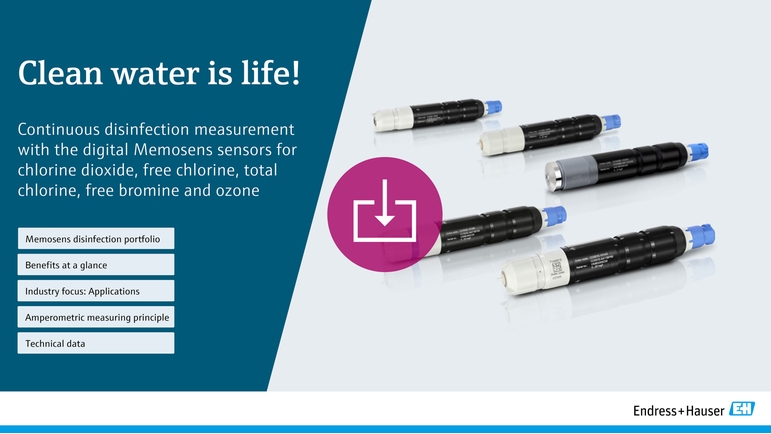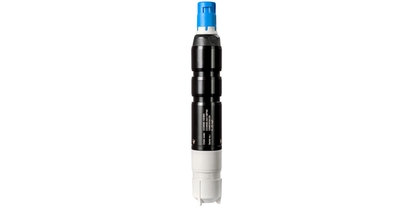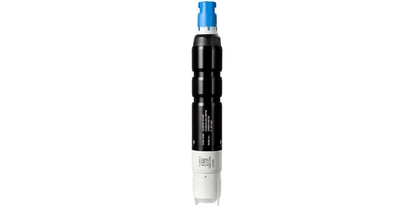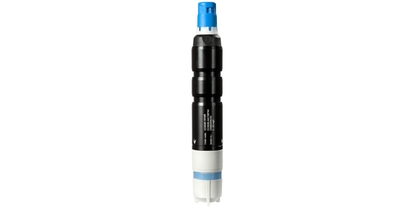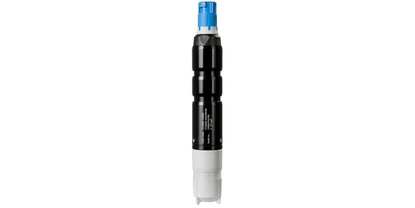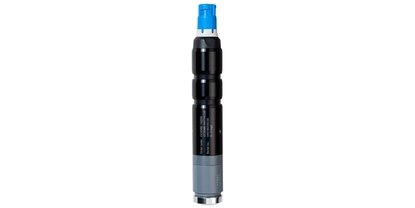Clean and safe water in waterworks and sewage plants
Whether you use chlorine dioxide, ozone, free bromine, free or total chlorine, we offer the right sensor for your disinfection monitoring.
Water is life! To guarantee clean and safe water every day, waterworks and wastewater treatment plants must comply with local water quality regulations as well as be able to operate cost-effectively. Our disinfection sensors with Memosens 2.0 technology give you a helping hand with that.
Benefits
Continuous and precise values: Using amperometric sensors, you can monitor your process in real time without the interruptions associated with the colorimetric measurement. This enables even more precise and efficient dosing of the disinfectant.
Quick commissioning leads to high plant availability: Pre-calibrated sensors can be easily connected via plug & play. Thanks to an optimized polarization time, a stable measured value is achieved more quickly and the plant is quickly available again.
Efficient process control: Many amperometric sensors are slow to respond after lengthy periods without chlorine. The short response time of our sensors enables you to react instantly to changes and thus guarantee efficient process control and safety.
Easy maintenance: Fitted with Memosens 2.0, the sensors store large amounts of data, e.g. on calibrations. You can use the electrolyte counter to optimize the maintenance strategy. Plus, the robust, convex membrane minimizes maintenance requirements.
Reduced operating and maintenance costs: Compared to colorimetric measuring systems, you do not need any reagents and there is no associated disposal. Less maintenance and fewer measured errors also reduce the costs of the measuring point.
Overall, these benefits help to optimize dosing, reduce the number of personnel and time required, and lead to lower operating costs for the measuring point in water and wastewater applications, such as:
Sewage plants: Reliable even after the absence of chlorine
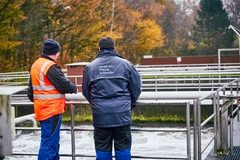
Depending on local legislation, the determination of the free or total chlorine is required for the effluent. It can happen that the chlorine has been removed to such an extent that it can no longer be detected. The challenge for chlorine sensors is to provide reliable measurements even after long periods in which no chlorine is present. Our chlorine sensors, for example Memosens CCS53E for total chlorine, solve this by not being deactivated under such conditions – unlike other sensors.
Waterworks: Cost efficiency through ideal dosing
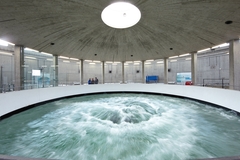
Ozone is often the agent of choice for disinfection within the treatment process in the waterworks because it is highly reactive. The particularly stable measuring signal of the Memosens CCS58E ozone sensor (repeatability 0.055 mg/l) allows even more precise dosing: high enough to eliminate pathogens. And simultaneously as low as possible so as not to endanger health and safety for people and the environment – and to keep costs as low as possible.
Drinking water network: Precise values even at trace level
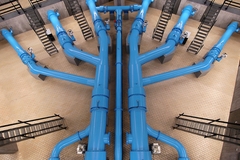
To transport drinking water to the users, a small amount of disinfectant is added at the outlet of the waterworks. This forms deposits and prevents the water from being recontaminated in transit. Disinfection here is often at trace level. The trace sensor versions of Memosens CCS50E for chlorine dioxide and Memosens CCS51E for free chlorine are particularly suitable for this purpose. They deliver precise results even at the trace level with an extremely high selectivity for the disinfectant.
Desalting: Measurement in full thanks to bromine measurement
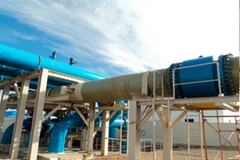
Seawater should be disinfected before desalination in order to minimize the biological activity and thus maximize the operating time of the downstream filters and the desalination plant. A special feature of salt water is that it contains a higher quantity of bromide salts, which also have a disinfecting effect. Accordingly, pure chlorine monitoring underestimates the disinfection performance. A supplementary measurement of free bromine using the sensor Memosens CCS55E solves this problem.
-
Standard products
- Reliable, robust and low-maintenance
Technical excellence
Simplicity
-
Specialized products
- Designed for demanding applications
Technical excellence
Simplicity
Variable
| FLEX selections | Technical excellence | Simplicity |
|---|---|---|
Fundamental selection Meet your basic measurement needs |
Technical excellence
|
Simplicity
|
Lean selection Handle your core processes easily |
Technical excellence
|
Simplicity
|
Extended selection Optimize your processes with innovative technologies |
Technical excellence
|
Simplicity
|
Xpert selection Master your most challenging applications |
Technical excellence
|
Simplicity
Variable |
Downloads
-
-
Case Study (CS)

Clean wastewater after successful food washing
Clean wastewater after successful food washing. Benefit from efficient monitoring of chlorine elimination with Memosens CCS51E.
File size:
File name:
-
-
-
Image
Overview on disinfection sensors with Memosens 2.0
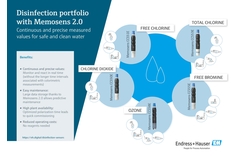
Get an overview at a glance on the sensors for chlorine dioxide, free chlorine, total chlorine, free bromine and ozone to monitor disinfection in your respective industry.
File size:
File name:
-


